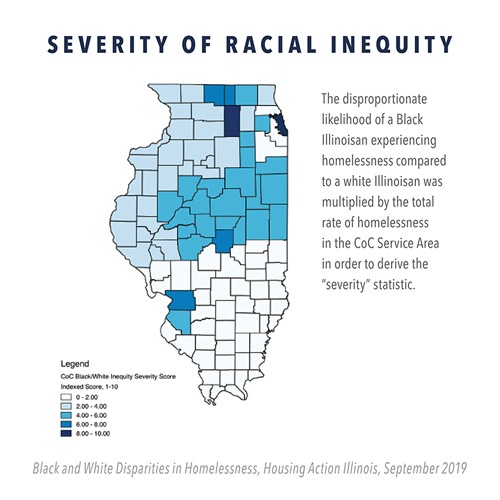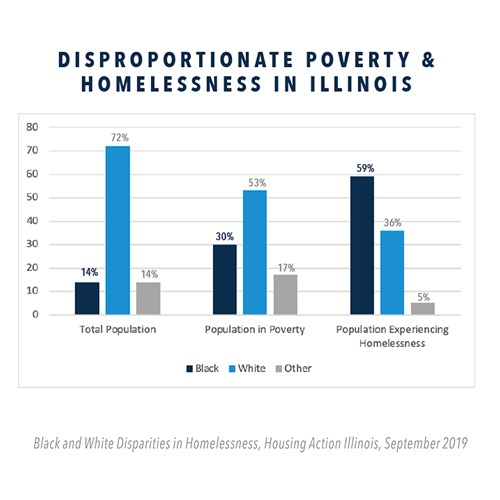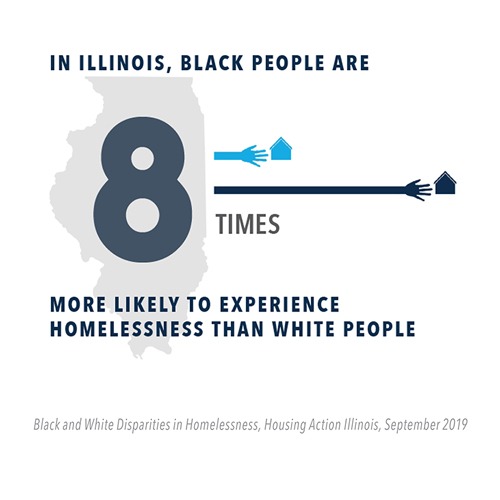For Immediate Release: September 4, 2019
For more information contact: Kristin Ginger, Communications Manager, Housing Action Illinois, kristin@housingactionil.org or 312-854-3333
Black and White Disparities in Homelessness, a new policy brief from Housing Action Illinois, finds that Black Illinoisans are disproportionately more likely to experience homelessness than White Illinoisans—even among those living in poverty.
The publication analyzes newly available federal data released by the U.S. Department of Housing and Urban Development (HUD). It finds that although Black Illinoisans make up 14% of the population of the state, they make up 30% of residents experiencing poverty and 59% of residents experiencing homelessness.
“We knew that Black people experience homelessness more often than White people, but these numbers show just how severe the gap is,” says Sharon Legenza, Executive Director of Housing Action Illinois. “And the data makes it clear that it is an issue in all of our communities—in rural, suburban, and urban areas.”
By calculating racial equity severity scores for each region of Illinois, determined by how much more likely a Black person is to experience homelessness compared to a White person living in the area, the policy brief contextualizes the HUD data on a state level. Chicago has the highest disparity, followed by DeKalb County and then Rockford, Winnebago, and Boone Counties.
“There are a lot of systemic inequities at work here, including decades of segregation and discrimination and a history of vastly unequal government investments,” says Bob Palmer, Policy Director of Housing Action Illinois. “But there are clear steps we can take to dismantle these systems and make progress in ending racial disparities related to homelessness. Eventually, if we have the political will and invest our resources, we can make sure everyone in Illinois has a good, stable home.”
The publication’s policy recommendations include adopting a racial equity framework for housing initiatives and implementation of services; protecting and enforcing fair housing laws; addressing the issue of eviction; increasing investments in homelessness prevention; increasing investments to protect and expand affordable housing; and ensuring people with arrest and conviction records have equal access to housing opportunities.


